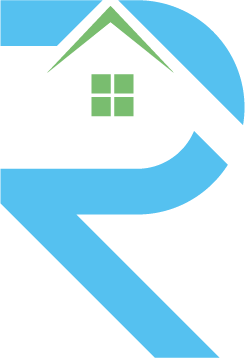What are Closing Budgets?
A major life accomplishment, purchasing a home is frequently seen as a sign of long-term financial security. But many first-time homebuyers have discovered the hard way that budgeting for homeownership entails more than just the down payment and mortgage.
Closing costs: The hidden expenses
Budgeting for closing expenses is one of the most important lessons for homeowners. These costs may not be anticipated and may have a big impact on your finances. The following closing charges can total up to 2% of the selling price of your house, and you should budget for them as follows:
- Fee for the appraisal: Before completing your house purchase, the fair market worth of the property is ascertained through an appraisal. In order to guarantee your mortgage approval, you must pay this charge.
- Home inspection: Although it’s not a requirement, obtaining a professional home inspection before completing your home purchase is strongly recommended. A home inspection serves as a valuable tool to uncover any concealed property issues, potentially influencing your decision-making process and offering negotiation leverage. The expense associated with a home inspection can fluctuate, primarily contingent on the property’s size and intricacy, typically ranging from $300 to $600.
- Tax expenses: Depending on where you live, you could have to pay taxes like the Land Transfer Tax, the Land or Deed Registration Fee, the Tariff, or the Property Purchase Tax. It is advisable to ask for an estimate because these taxes can be significant. Rebates may also be available to first-time buyers.
- Legal costs (including disbursements): Attorneys are essential to the home-buying process since they deal with contracts, titles, and other legal issues. Be ready to pay additional disbursements and legal fees.
- Title insurance and land survey: Title insurance safeguards your ownership rights, while a land survey verifies the boundaries of your property. Both are necessary to protect your investment.
- Reimbursement of payments: You can be required to pay back any pre-paid charges made by the previous owner, such as utility or property tax payments. Make sure your budget includes these.
- Interest adjustment: Interest adjustment takes into account the time between the day your mortgage was closed and the first payment on it.
- PST on default insurance: If necessary, you may be required to pay Provincial Sales Tax (PST) on default insurance.
- GST/HST on new builds: GST/HST may be applicable on newly built homes. Fortunately, incentives are accessible to lessen this cost.
- Utility hook-ups: Upon moving into your new residence, the essential step involves arranging for utilities such as water, electricity, gas, and potentially, internet and cable services. It’s important to note that certain utility providers may impose fees for connection or activation. The extent of these charges can fluctuate based on your geographical location and the particular services you opt for.
- Costs of moving: Whether you hire moving specialists or do it yourself, don’t forget to budget money for the actual moving process.
- Furniture and appliances: Furnishing your new house with furnishings and appliances will cost a lot of money. Plan your purchases in accordance with your order of priority for necessities.

Ongoing monthly expenses
Even though closing costs are significant, it’s equally crucial to budget for recurring costs that become a part of your monthly mortgage payments. These consist of:
- Home insurance: Safeguarding your investment with home insurance is a crucial step in responsible homeownership. It is highly advisable to diligently compare prices and carefully evaluate the coverage options available before making a selection that suits your needs.
- Property taxes: Property taxes play a vital role in financing essential neighborhood services and supporting public schools. It is imperative for homeowners to fulfill their property tax obligations, contributing to the well-being and development of their communities.
- Mortgage insurance: Mortgage Insurance is a consideration when your down payment is below 20% of the property’s purchase price. In such cases, you might be obligated to secure mortgage insurance either through the Canada Mortgage and Housing Corporation (CMHC) or a private mortgage insurer. The expense associated with mortgage insurance hinges on the size of your down payment and the property’s purchase price. Typically, these insurance costs are integrated into your monthly mortgage payments.
- Utility costs: Gas, hydro, and water bills are ongoing costs that change based on your usage and regional prices.
- Internet/streaming/cable: In the current digital era, these services are crucial for communication and pleasure. Incorporate them into your spending plan.
- Ongoing maintenance: To keep a house in good shape, ongoing maintenance is necessary. Set aside money for upkeep, repairs, and unforeseen costs like a broken furnace or a leaky roof.
Homebuyers need to plan their finances carefully before making a purchase. In addition to the down payment and mortgage, there are a lot of additional expenses involved in completing a real estate transaction. Closing costs include a variety of costs, such as legal fees, taxes, and utility hookups, and can amount to up to 2% of the selling price of your home.
Additionally, it’s crucial to take into account recurring monthly costs like home insurance, property taxes, utilities, and upkeep. These ongoing expenses are a necessary aspect of homeownership and should not be disregarded.
You may start your homeownership journey with financial assurance by thoroughly budgeting for both closing and ongoing costs, ensuring that your dream house stays an asset rather than a financial burden.
